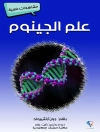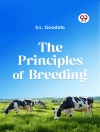Genome sequencing enables scientists to study genes over time and to test the genetic variability of any form of life, from bacteria to mammals. Thanks to advances in molecular genetics, scientists can now determine an animal’s degree of inbreeding or compare genetic variation of a captive species to wild or natural populations. Mapping an organism’s genetic makeup recasts such terms as biodiversity and species and enables the conservation of rare or threatened species, populations, and genes.
By introducing a new paradigm for studying and preserving life at a variety of levels, genomics offers solutions to previously intractable problems in understanding the biology of complex organisms and creates new tools for preserving the patterns and processes of life on this planet. Featuring a number of high-profile researchers, this volume introduces the use of molecular genetics in conservation biology and provides a historical perspective on the opportunities and challenges presented by new technologies. It discusses zoo-, museum-, and herbarium-based biological collections, which have expanded over the past decade, and covers the promises and problems of genomic and reproductive technology. The collection concludes with the philosophical and legal issues of conservation genetics and their potential effects on public policy.
Inhoudsopgave
List of Illustrations
List of Tables
Foreword: The Continuity of Genomes and Genetic Resources for the New Century, by Sydney Brenner
Acknowledgments
General Introduction
Part I. Perspectives on the Union of Conservation and Genetics
1. The Expansion of Conservation Genetics, by Rob De Salle and George Amato
2. Conservation Genetics and the Extinction Crisis: A Perspective, by William Conway
3. Moving Toward a More Integrated Approach, by George Amato
Part II. Conservation Genetics in Action: Assessing the Level and Quality of Genetic Resources in Endangered Species
4. Neutral, Detrimental, and Adaptive Variation in Conservation Genetics, by Philip W. Hedrick
5. Stopping Evolution: Genetic Management of Captive Populations, by Robert C. Lacy
6. The Emerging Theme of Ocean Neighborhoods in Marine Conservation, by Stephen R. Palumbi
7. Genetic Data and the Interpretation of Restoration Priorities of the Cicindela dorsalis Say Complex (Coleoptera: Carabidae): The Components of Conservation Genetics Revisited, by Paul Z. Goldstein
Range Collapse, Population Loss, and the Erosion of Global Genetic Resources, by James P. Gibbs
Part III. Saving Genetic Resources
9. Biodiversity, Conservation, and Genetic Resources in Modern Museum and Herbarium Collections, by Robert Hanner, Angélique Corthals, and Rob De Salle
10. Banking of Genetic Resources: The Frozen Zoo at the San Diego Zoo, by Leona G. Chemnick, Marlys L. Houck, and Oliver A. Ryder
11. The Role of Cryopreserved Cell and Tissue Collections for the Study of Biodiversity and Its Conservation, by Vitaly Volobouev
12. The Silent Biodiversity Crisis: Loss of Genetic Resource Collections, by Deborah L. Rogers, Calvin O. Qualset, Patrick E. Mc Guire, and Oliver A. Ryder
13. Who Owns the Ark, and Why Does It Matter?, by Cathi Lehn, Rebecah Bryning, Rob De Salle, and Richard Cahoon
Part IV. Genomic Technology Meets Conservation Biology
14. Conservomics? The Role of Genomics in Conservation Biology, by George Amato and Rob De Salle
15. Genomics and Conservation Genetics, by Judith A. Blake
16. Crop Transgenes in Natural Populations, by Norman C. Ellstrand
17. The Role of Assisted Reproduction in Animal Conservation, by Anne Mc Laren
18. Conservation and Cloning: The Challenges, by Ian Wilmut and Lesley Paterson
Part V. Policy, Law, and Philosophy of Conservation Biology in the Age of Genomics
19. Can Our Laws Accommodate the New Conservation Genetics?, by Gerald J. Flattmann Jr., Barbara A. Ruskin, and Nicholas Vogt
20. The Import of Uncertainty, by Sandra D. Mitchell
Further Reading
List of Contributors
Index
Over de auteur
George Amato is director of the Sackler Institute for Comparative Genomics at the American Museum of Natural History, an adjunct professor at Columbia University and Fordham University, and a research associate in the Ecology and Evolutionary Biology Department at Yale University.Rob De Salle is curator of Invertebrate Zoology at the American Museum of Natural History and scientist at the Museum’s Sackler Institute for Comparative Genomics. He is an adjunct professor at Columbia University and New York University and is the editor of
Molecular Phylogenetics and Evolution. Oliver A. Ryder is the associate director and Kleberg Chair of Genetics at the Zoological Society of San Diego’s Conservation and Research of Endangered Species Program.Howard C. Rosenbaum is the director of the Ocean Giants program at the Wildlife Conservation Society.












